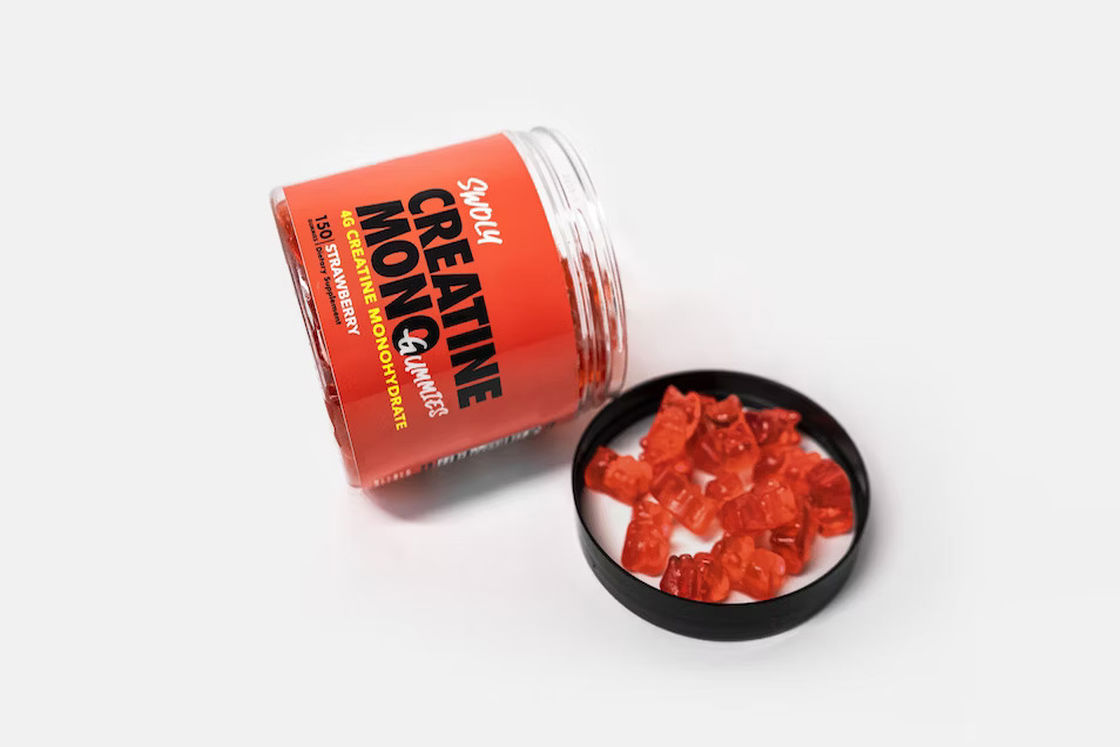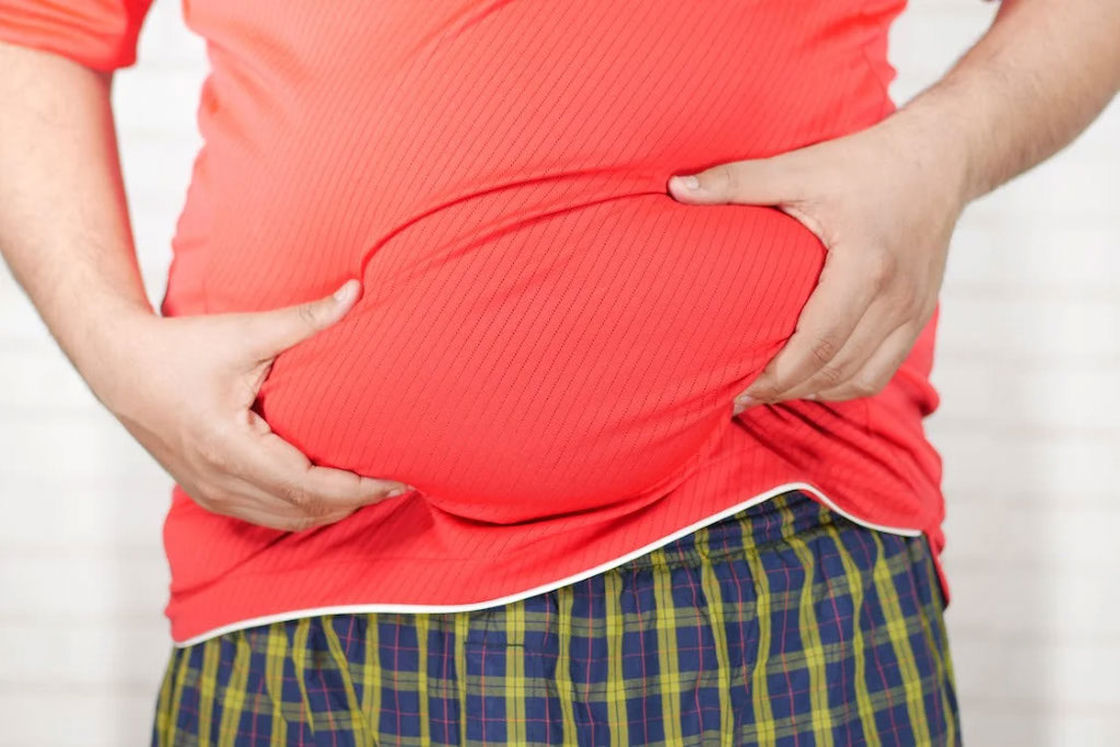Many active individuals and athletes take creatine monohydrate supplements to boost energy generation, increase muscle power, and enhance workout performance. However, does creatine monohydrate cause bloating? In this article, we will explore its effects on the body and whether it causes some kind of water retention.
Does Creatine Monohydrate Cause Bloating?
When creatine levels increase in the body from supplements, it causes the muscles to hold more water, sometimes resulting in minor bloating. Creatine monohydrate supplements get converted to phosphocreatine, providing muscles with higher levels of phosphocreatine stores. This helps the body regenerate ATP more quickly, supply more energy to cells, especially muscle cells.
It is the muscle hydrating effect of creatine can lead to bloating in some individuals, especially when first taking creatine or increasing the dosage. The bloating tends to be temporary and goes away once the body adjusts to the higher creatine levels, usually within a week or two of continued use.

Why Should You Take Creatine?
Along with an inorganic phosphate molecule, creatine helps produce adenosine triphosphate, a significant energy source. While the body naturally produces creatine, taking creatine supplements has been shown to increase athletic performance, muscular strength, and muscle mass. It can also improve recovery time and reduce damage to muscles.
The benefits of creatine include:
- Increased muscle strength and power: It helps you lift more weight and perform more reps during high-intensity exercise.
- Improved muscle endurance: You can exercise at maximum intensity for longer periods.
- Faster muscle gain: Creatine supplement speed ups muscle gain when combined with resistance training. Creatine causes your muscles to draw in more water, giving them a fuller appearance.
- Better brain function: It may help boost certain forms of memory and intelligence. Creatine provides fuel for your brain cells, just like your muscle cells.
Loading and Bloating
The typical creatine dosage for muscle gain involves an initial creatine loading phase of 20 to 25 grams daily for 5 to 7 days, followed by a maintenance dose of 3 to 5 grams daily. The phase of loading aims to saturate your muscles quickly yet often causes temporary water retention and bloating.
Many people skip the loading phase to avoid bloating caused by creatine and slowly build up creatine stores over a few weeks with a modest dosage of 3 grams daily. For instance, creatine hydrochloride doesn’t need a loading phase.
Either way, your body adapts to the creatine over time, reducing or eliminating any initial bloating.
Is Creatine Safe?
When taken according to recommendations, creatine supplements are considered very safe for most adults. However, some potential side effects to be aware of too much creatine include:
- Weight gain: It causes water retention in skeletal muscles and can increase body weight. This initial weight gain is temporary, however.
- Cramps: It may temporarily cause stomach upset and muscle cramps, especially if you take high doses during the phase of loading.
- Dehydration: To avoid dehydration, drink plenty of water when taking creatine. It can draw water into your muscles, reducing water elsewhere.
- Kidney problems: High doses of creatine over a long period may damage the kidneys. You should stay within the recommended dosage and usage guidelines and talk to your doctor if you have kidney concerns.
- Restlessness or sleep issues: Some people report feeling restless or experiencing sleep disruptions, especially during the loading phase. Taking it earlier in the day and using a lower dose may minimize these effects.

In general, supplements containing creatine are very safe when consumed in moderation and according to recommended dosage guidelines. Remember that creatine phosphate stores are the body’s first energy choice, especially for athletic performance like weight lifting.
What Is Creatine Bloating?
Creatine bloating refers to temporary water retention caused by creatine monohydrate supplements. When taken, the muscles absorb water from the rest of the body and make them appear fuller, which may cause a slight swelling in the hands, feet, face, or midsection.
How Does Creatine Bloating Feel?
Creatine bloating can make you feel many things because of its side effects.
- Puffy sensation in your midsection, especially in the lower abdomen
- Larger muscles feel tight, especially arms and legs
- Skin to be tighter and less defined
- Rings, watches, and other accessories to feel tighter due to minor swelling of hands and feet
- Mild discomfort
How to Beat the Bloat
Creatine bloating is usually temporary and will disappear without intervention once your body gets used to the supplement. However, you can speed up the adjustment process and minimize discomfort by:
- Skipping the loading phase: Start with a small maintenance dose of 3 to 5 grams of creatine per day instead of mega-dosing.
- Increase your water intake: Drink plenty of water to stay well hydrated.
- Reduce dosage: Cut your creatine dose in half or switch to a lower dose.
- Take creatine with meals: Consuming creatine with food can help minimize gastrointestinal upset.
- Exercise regularly: Exercise improves circulation and can speed up the removal of excess fluid buildup.
- Add diuretics or electrolytes: A diuretic may sometimes relieve bloating. You can also add electrolytes to your water which helps flush out excess fluid.
Does Creatine Bloating Go Away?
Thankfully, it is short-term for most people and will resolve on its own over time. After 1 to 2 weeks of continued creatine use, your body adapts to the supplement, and water retention decreases significantly or completely disappears.
How Long Does Creatine Bloating Last?
For most people, bloating caused by creatine lasts around 1 to 2 weeks after starting supplementation. It tends to be most prominent during the initial phase of loading, then gradually improves over the first week or two of continued use as your body adjusts. However, it can vary from person to person.
How to Avoid Creatine Bloating
To avoid or minimize bloating while taking supplements containing creatine, staying hydrated by drinking plenty of water is essential. It is also recommended to avoid high-sodium foods, as sodium can cause water retention. Eating a balanced diet with plenty of fruits and vegetables can also help reduce it.

Change the Dosage and Loading Phase
It is recommended to start with a maintenance dose of 3-5 grams per day without the phase of loading to minimize the risk of bloating. Some studies have suggested that taking a maintenance dose of creatine supplements can achieve the same results as the loading phase.
Try a Different Form of Creatine
Suppose you experience bloating while taking monohydrate of creatine supplements. In that case, try switching to other forms of creatine supplements, such as buffered creatine monohydrate, Hydrochloride, Nitrate, or Magnesium Glycerol Phosphate. Other forms of supplements, like creatine HCL, are less likely to cause bloating than traditional Monohydrate ones.
Make Lifestyle Changes
Making lifestyle changes can also help reduce bloating. Eating a balanced diet with plenty of fruits and vegetables, exercising regularly, and managing stress can help reduce it.
It’s important to note that some level of bloating is normal and can be expected when taking creatine supplements. However, severe or persistent bloating should be addressed with a healthcare professional.
Related Questions
Does Creatine Monohydrate Make You Look Bloated?
Creatine supplements or creatine monohydrates draw water into your muscles, causing them to swell in size. This temporary fluid retention can make your muscles appear fuller and rounder, giving some the impression of a “bloated” look.
Does Creatine Monohydrate Cause Water Bloating?
Supplements containing creatine work by drawing water into your muscle cells. This can temporarily increase total body water and cause minor swelling in the limbs, face, or abdomen — also known as “water bloating”. The effects of creatine are most prominent when you first start taking creatine or increase your dose during the phase of loading.
Do Different Types of Creatine Prevent Bloating?
Recent research suggests that different types of creatine can drastically affect your body, with some causing significantly less bloating than others. Don’t settle for uncomfortable side effects; educate yourself on the benefits of various types of creatine and make an informed decision for your body.
Conclusion
Traditional creatine supplementation can cause bloating as a side effect. However, there are ways to avoid or minimize it. Staying hydrated, avoiding foods high in sodium, starting with a maintenance dose instead of the loading phase, switching to other forms of creatine, and making lifestyle changes are effective remedies for it.